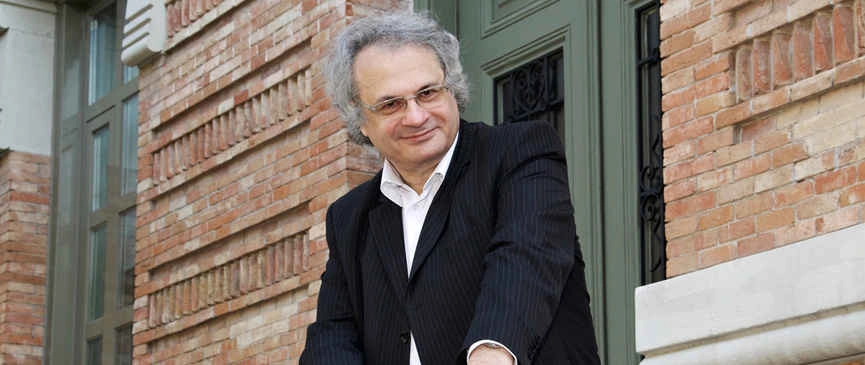Main content
Amin Maaolouf Prince of Asturias Award for Literature 2010

Speech by Amin Maalouf:
Your Majesty,
Your Royal Highnesses,
Authorities,
Members of the Juries,
Dear Friends,
I would have wished to express, as other speakers will do, in the language of Cervantes, Borges and García Lorca the immense happiness I feel on receiving the Prince of Asturias Foundation’s Award for Letters.
Unfortunately, I shall not be able to do so. Spanish is a language that I find pleasing to the ear, which I enjoy reading and which I understand a little better than I will usually admit to. I am, however, unable to use it with the rigour and subtlety it deserves, which, on a day such as today, does not cease to embarrass me somewhat, although I hope that you may appreciate the use of a language from beyond the Pyrenees and an accent from the other side of the Mediterranean as a symbol of the care and attention with which your Foundation and your country welcome the world’s diversity.
This diversity of the world, the extraordinary cultural diversity that characterises any human society, is generally the object of praise, but also sometimes cause for suffering; because, although it is a source of wealth for our countries, it is also a source of tensions. Those nations based on ethnic diversity and immigration figure among the most dynamic on the planet –one need only look to the other side of the Atlantic to confirm that this is so. However, this dynamism often goes hand in hand with discontent, discrimination, hatred and violence.
In itself, diversity is neither a blessing nor a curse. It is simply a reality, a fact of life. The world is a mosaic of innumerable nuances, and our countries, our provinces and our cities progressively take on the image and semblance of this world. The issue is not knowing whether we can live together despite our differences in colour, language or creed; the question is knowing how to live together, how to turn our diversity into a benefit rather than a misfortune.
Living together is not innate to men, whose spontaneous reaction is usually that of rejecting the other. Overcoming rejection requires the lengthy undertaking of educating citizens, incessantly repeating –to one and all– that the identity of a country is neither a blank sheet on which anything may be written nor an already written and printed page, but rather a page that is in the process of being written. There is a common heritage –institutions, values, traditions, a way of life– which each and every one of us must ascribe to, but each of us must also feel free to make our own contribution depending on our own talents and sensibilities. As I see it, getting this message to take root in the way people think is a priority for educated people today.
Culture is not a luxury that we can only afford in times of abundance. Its task consists in posing the essential questions: Who are we? Where are we going? What do we hope to build? What kind of society? What kind of civilization? Based on what values? How to use the vast resources that Science offers us? How to convert these into instruments of freedom and not of servitude?
The role of culture is even more crucial in times of confusion. Likewise, our age is an age of confusion. If we let down our guard, the century that has just commenced will be a century of moral regression −and I say this with sadness and pondering my words. A century of scientific and technological advances without a doubt; but also a century of moral regression. affirmations of identity, exacerbated, sometimes violent, sometimes reactionary; diminishing solidarity among nations and within the heart of nations themselves; the fading away of the European dream; the erosion of democratic values; the excessive use of military expeditions and of laws of exception… The symptoms are innumerable.
Faced with this incipient regression, we cannot become resigned or give way to despondency. Today, the honour of literature –our own honour– lies in striving to comprehend the complexity of our age and in inventing solutions so that our world can continue to be inhabitable. We do not have spare planets, we have only our aging Earth, and our duty is to preserve, harmonize and humanise it.
Thank you all for your attention at this unforgettable ceremony.
End of main content
